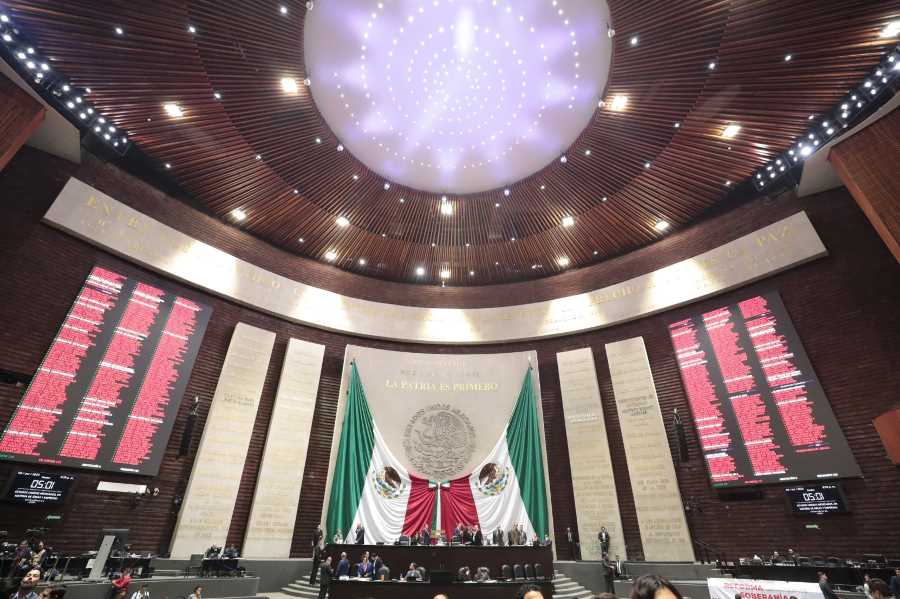Mexican Deputies Clash Over Energy Transition Amendments
Mexican Chamber of Deputies approves constitutional reform on strategic areas and companies, amending energy transition policies. Key changes include removing state's sole responsibility for energy transition.

In a decisive vote that underscores Mexico's deep political divisions on energy policy, the Chamber of Deputies has approved sweeping reforms to the nation's constitution that reshape the role of the State in the energy sector. With 350 votes in favor, 111 against, and one abstention, the reform—which modifies Articles 25, 27, and 28 of the Political Constitution—now moves to the Senate for further consideration. This legislative push centers on Mexico’s strategic industries and comes amid mounting concerns over the country’s ability to balance national sovereignty with international climate commitments.
At the heart of the reform is a significant change in how Mexico will manage its energy transition. In particular, the deputies voted to remove language in Article 27 that placed the State as the primary entity responsible for leading the transition to renewable energy sources. A broad political coalition, including deputies from Morena, the National Action Party (PAN), the Labor Party (PT), the Institutional Revolutionary Party (PRI), and Citizens' Movement (MC), presented various proposals to modify the initial draft. The only successful proposal, from Morena deputy Ana Elizabeth Ayala Leyva, altered critical portions of Articles 27 and 28.
These changes have ignited a fierce debate among Mexico’s lawmakers, pitting those who believe in a more privatized approach to energy transition against those who argue for stronger state control. Supporters argue that these modifications allow both public and private sectors to share the burden of modernizing Mexico’s energy infrastructure, while detractors claim the revisions undermine Mexico’s environmental commitments and open the door to excessive private influence.
The Debate Over State Control
Proponents of the reform, primarily from President Andrés Manuel López Obrador's Morena party, argue that the changes are necessary to avoid shackling the government with the sole responsibility for driving Mexico’s energy transition. Ricardo Monreal Ávila, the Morena parliamentary group coordinator, explained that while the State will maintain leadership, private investment will play an indispensable role in ensuring the nation can meet its future energy needs. “The State does not have the economic capacity to handle this transition alone,” Monreal emphasized, framing the reform as a pragmatic solution to the State’s resource limitations.
Morena’s Dolores Padierna Luna echoed these sentiments, stressing that by allowing private investment in the energy transition, Mexico can achieve its goals without compromising the State’s leadership role. She characterized the reform as a careful balancing act, ensuring that private actors contribute to the energy transition, while the State retains oversight and control over key sectors, particularly electricity.
Opponents of the reform, particularly from PAN and MC, vehemently disagree, warning that the changes endanger Mexico's commitments to international climate agreements, including the Paris Agreement. Deputy Germán Martínez Cázares (PAN) called the elimination of the original Article 27 paragraph a clear violation of international obligations, noting that the reform "amputates" the country’s energy transition. His concerns were echoed by Deputy Laura Iraís Ballesteros Mancillas (MC), who warned that the government is shirking its responsibility to protect the environment by diluting its commitment to the energy transition.
Critics also point out that the reform removes crucial language from Article 28, which initially aimed to ensure nationwide access to electricity. Deputy Margarita Ester Zavala Gómez del Campo (PAN) took aim at this deletion, arguing that it removes any guarantee of clean and affordable energy for Mexicans. She also expressed concern that the reform gives the government unchecked discretion over energy policy, potentially stifling competition and innovation in the renewable sector.
One of the more notable elements of the reform is the prioritization of railroads for both passenger and freight transportation, a move that underscores the government's broader strategic shift towards infrastructure development. By classifying railroads as priority areas for national development, the reform signals an intent to modernize and expand Mexico's rail system—an initiative that fits within López Obrador’s broader vision for national infrastructure.
A Divisive Path Forward
The reform’s passage in the Chamber of Deputies is a victory for the López Obrador administration, which has been pushing to regain greater control over Mexico's energy resources after decades of neoliberal reforms that opened the sector to foreign and private investment. However, it is clear that this victory comes at a significant political cost. The deep divisions within the Chamber reflect broader societal concerns about Mexico’s future energy policy, its ability to meet environmental goals, and its relationship with private investors.
The reform now moves to the Senate, where it is expected to face further scrutiny. Whether the legislation will emerge unscathed or undergo additional changes remains to be seen. In either case, the debate has made one thing clear: Mexico is at a critical crossroads in its energy policy. The question remains whether the country can balance national interests with global environmental responsibilities while ensuring that the benefits of energy modernization reach all Mexicans.
Mexico’s energy debate comes at a time when nations worldwide are grappling with the complex interplay between energy sovereignty and climate commitments. As countries aim to reduce carbon emissions in line with international agreements, the role of government and private industry in driving this transition has become a flashpoint in policymaking. Mexico’s decision to roll back the State’s exclusive responsibility for the energy transition raises concerns about whether it will be able to meet its climate goals.
The reform also reflects broader geopolitical dynamics, particularly in the context of North American energy independence. With Mexico being a key player in the regional energy market, how it navigates its energy transition could have significant implications for its trading partners, including the United States and Canada.
As the energy reform makes its way to the Senate, the stakes for Mexico's future could not be higher. The current legislative battle illustrates the difficulty of balancing national development, international climate commitments, and the need for foreign investment. While the government seeks to reclaim control over strategic sectors, it must also navigate the growing urgency of the global climate crisis. The coming months will reveal whether Mexico can achieve this delicate balance, or if the rift between public and private interests will deepen further.




